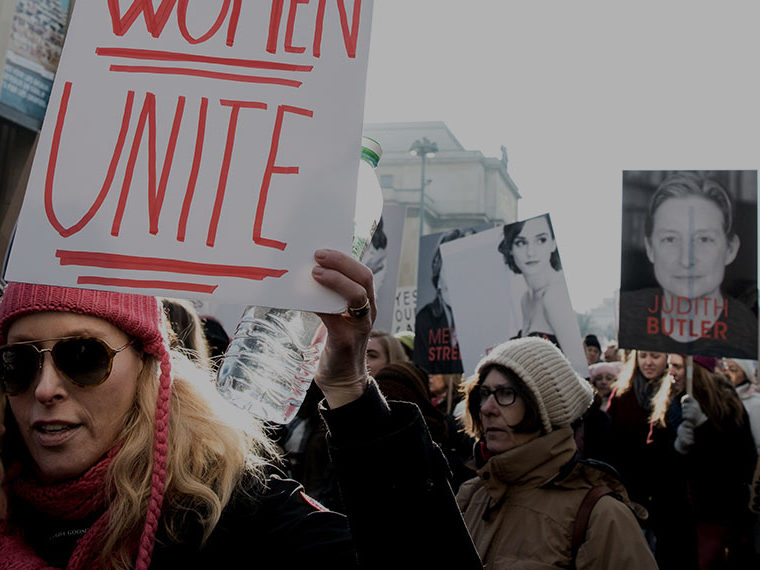Adding a note of personal advocacy to any factual statement helps a lot
Women and minority group members have faced discrimination in hiring and pay where white men have historically benefited from those biased practices. So, when a white male chooses to discuss these realities in the workplace, his race and gender inevitably get considered alongside the message.
In research published in the Personality and Social Psychology Bulletin, UCLA Anderson’s Elizabeth Q. Jiang, a Ph.D. student, and Sherry J. Wu find that, when addressing workplace racial and gender inequality, speakers aligned with the minority groups (specifically, white female, Black male, and/or Black female speakers) were deemed to be more focused on helping others. Participants rated the motivation of white male managers to be higher on self-interest and lower in “other-interest” than the minority group members.
But all is not lost for the legions of well-intentioned white males genuinely wanting to advance equity in their workplace. Jiang and Wu find an intriguingly simple fix: When the white male added a note of personal advocacy to his message — “as some of you may know, inequality is an issue near and dear to my heart” and “addressing group-based disparity is one of my personal missions” — he was significantly more likely to be perceived as concerned about the benefit of others. Additionally, when the minority group speakers included these statements of personal advocacy to their messages, the perceptions of them being interested in helping others also increased, suggesting that this simple addition benefits all speakers who genuinely advocate against inequality.
Opt In to the Review Monthly Email Update.
The Jiang and Wu paper joins a considerable body of research on gender, race and credibility. Some research has found that white men, the dominant social group in America (especially in managerial ranks of the workplace), have been rated higher than minority groups for competency and warmth and have been deemed more persuasive on issues that don’t directly benefit them. Yet there is also research that people with actual personal experience are seen as more persuasive and legitimate messengers than people without personal domain expertise. That would suggest white males might not be the best messengers for issues of gender and racial equality.
Across three studies, Jiang and Wu had more than 2,200 participants rate the extent to which they thought a messenger was acting out of self-interest and the extent to which they felt the messenger was focused on helping others. Jiang and Wu also provide evidence that the constructs of being self-interested and other-interested are independent of each other, such that a high rating in one does not mean a low rating for the other.
The Messenger Matters
In one study, all participants were told to imagine they worked for a company that sends out a monthly email newsletter featuring submissions from co-workers. Participants then read a fictional newsletter article written by a co-worker advocating for equality; the article included a photo and name of the author, effectively signaling the race and gender of the messenger.
In a first pass, the researchers had participants read an article that contained two real-world government data points.
- “According to the Bureau of Labor Statistics, unemployment breakdown by race is as follows: Whites (3.3%) and Blacks (6.1%) (for the year 2019).”
- “According to the U.S. Census Bureau, households headed by men have an average yearly income of $88,182, and households headed by women have an average yearly income of $64,470 (for the year 2019).”
Using a scale of 1-6, participants rated how they perceived a messenger’s motivation for both self-interest and other-interest. In this fact-only newsletter article, white males were judged to be significantly more self-interested than white females. (The difference with Black females and Black males was not deemed significant.) White males also scored significantly lower in their perceived focus on others than all three minority member groups.
The researchers then ran the same experiment, but in addition to the factual data points in the newsletter article, there was also a note of personal advocacy from the messenger (e.g., “inequality is an issue near and dear to my heart.”)
As shown in the orange bars in the left graphic below, when the white male messenger (dominant) included a bit of personal advocacy, he was deemed to have a higher interest in the benefit of others. Self-interest ratings (the right panel) were lower overall for both groups, and advocacy was not a significant lever. Interestingly, using personal advocacy enhanced other-interest ratings and lowered self-interest ratings for all messengers. Thus including personal statements can be a possible tool in improving perceptions of authentic advocates.
“The simple, low-cost intervention of including personal advocacy intentions when speaking up about disparities and inequality is, particularly from the dominant group members, a necessary and important first step in the long march towards organizational justice and equity,” write Jiang and Wu.
Featured Faculty
- Elizabeth Jiang
-
Sherry Jueyu Wu
Assistant Professor of Management and Organizations and Behavioral Decision Making
About the Research
Jiang, E.Q., & Wu, S.J. (2025). Messenger–Message Discordance: When Presenting Workplace Disparities, Who Speaks Up (and How) Matters for Other-Interest and Self-Interest Attributions. Personality and Social Psychology Bulletin, 01461672251338679.






